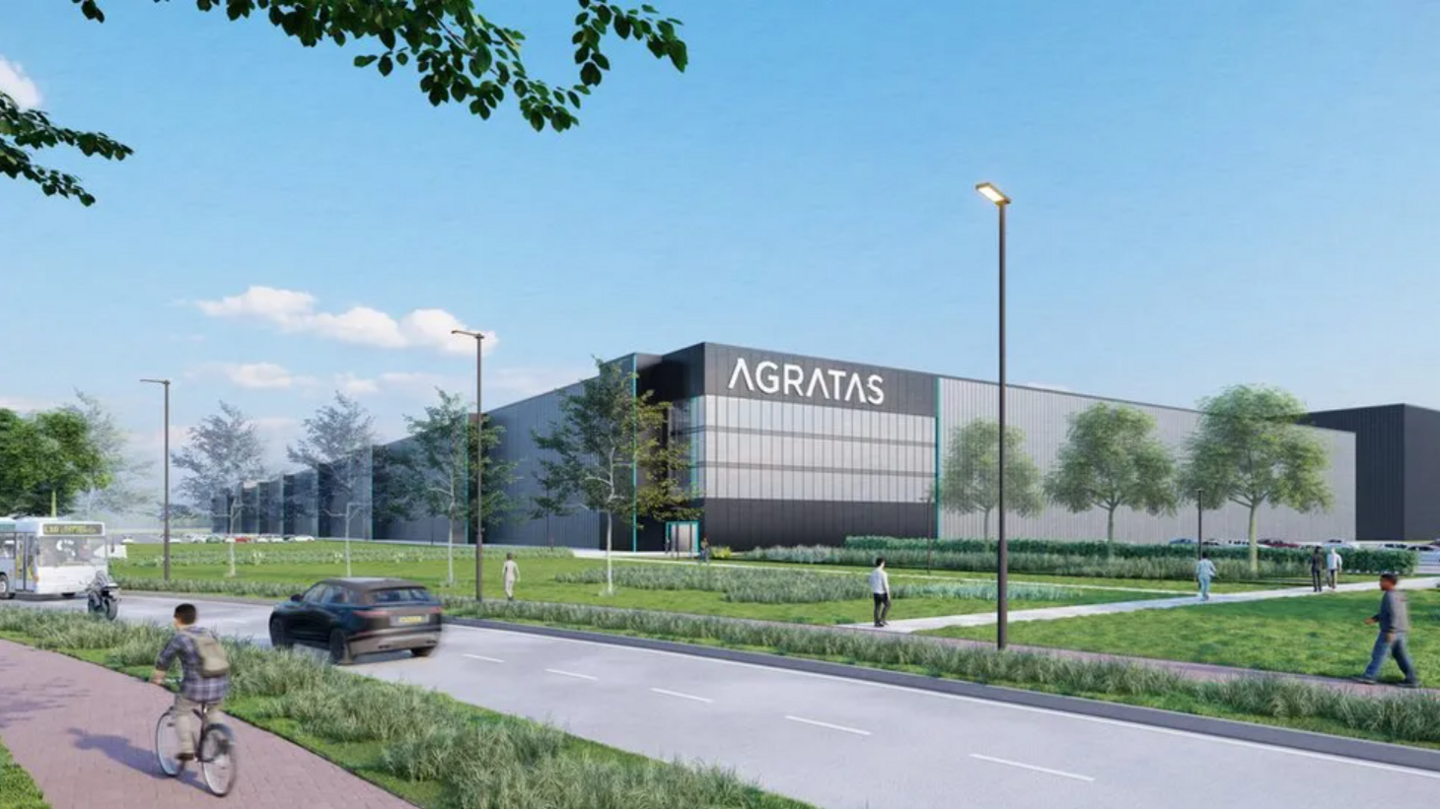'Hazardous' materials may be stored near villages

Artists impression of the new battery factory near Bridgwater
- Published
Thousands of tonnes of "hazardous substances" could soon be stored near two villages in Somerset for the development of a gigafactory.
Agratas, which is part of Tata group, confirmed in February it would build a £4bn gigafactory at the Gravity site between Puriton and Woolavington near Bridgwater, creating up to 4,000 new jobs.
Somerset Council has committed to spend up to £150m delivering the infrastructure needed, including the possible restoration of the rail link into the northern part of the site.
Agratas has now submitted plans laying out the various chemicals that would be stored on site for use in the creation of lithium-ion batteries for electric vehicles, and said they would be stored safely and in line with regulations.
The plans are for three large buildings within the centre of the site, with a number of smaller structures around them to provide training, store transformers and for other ancillary uses, according to the Local Democracy Reporting Service.
The following chemicals will be stored at various locations throughout the site:
Carbonate lithium hexafluorophosphate mixture – up to 2,500 tonnes at any one time
Diethyl carbonate – up to 50 tonnes
Nickel manganese cobalt cathode active material – up to 7,800 tonnes
Petroleum products and alternative fuels, including petrol, kerosene, diesel and other fuel oils – up to 500 tonnes
'Essential chemicals'
Jane Hurst of Stantec UK, representing Agratas, said: "The construction of the battery facility will occur in phases.
“We confirm the maximum quantities of substances proposed as stated are for the operational requirements of all three production buildings.
“They are the maximum quantity of each substance to be stored and involved in an industrial process.
“Agratas Ltd will be liaising closely with the local authorities, the police, fire and ambulance services regarding all relevant aspects of this development, including the need to prepare an emergency plan.”
The council is expected to make a decision about the proposals later in the year, ensuring the plans comply with the local development order (LDO) put in place in December 2021 to speed up the delivery of the site.
An Agratas spokesperson added: “The production of batteries involves essential chemicals and minerals using state-of-the-art technology.
"The specialised processing of these materials generates the power within our batteries, which will be vital to moving to a cleaner, greener economy.
"All our materials will be stored safely on-site, in line with strict regulations."
The council’s corporate and resources scrutiny committee will meet in Taunton on 29 May to discuss the infrastructure needs of the Gravity site, including road and rail access for staff and material deliveries.
Follow BBC Somerset on Facebook, external and X, external. Send your story ideas to us on email or via WhatsApp on 0800 313 4630.
Building gigafactory 'going to be a wild ride'
- Published2 May 2024
Council may borrow £150m towards gigafactory work
- Published12 March 2024
What is a gigafactory and why is it important? Video, 00:01:25
- Published21 July 2023
Thousands of tonnes of "hazardous substances" could soon be stored near two villages in Somerset for the development of a gigafactory.
Agratas, which is part of Tata group, confirmed in February it would build a £4bn gigafactory at the Gravity site between Puriton and Woolavington near Bridgwater, creating up to 4,000 new jobs.
Somerset Council has committed to spend up to £150m delivering the infrastructure needed, including the possible restoration of the rail link into the northern part of the site.
Agratas has now submitted plans laying out the various chemicals that would be stored on site for use in the creation of lithium-ion batteries for electric vehicles, and said they would be stored safely and in line with regulations.